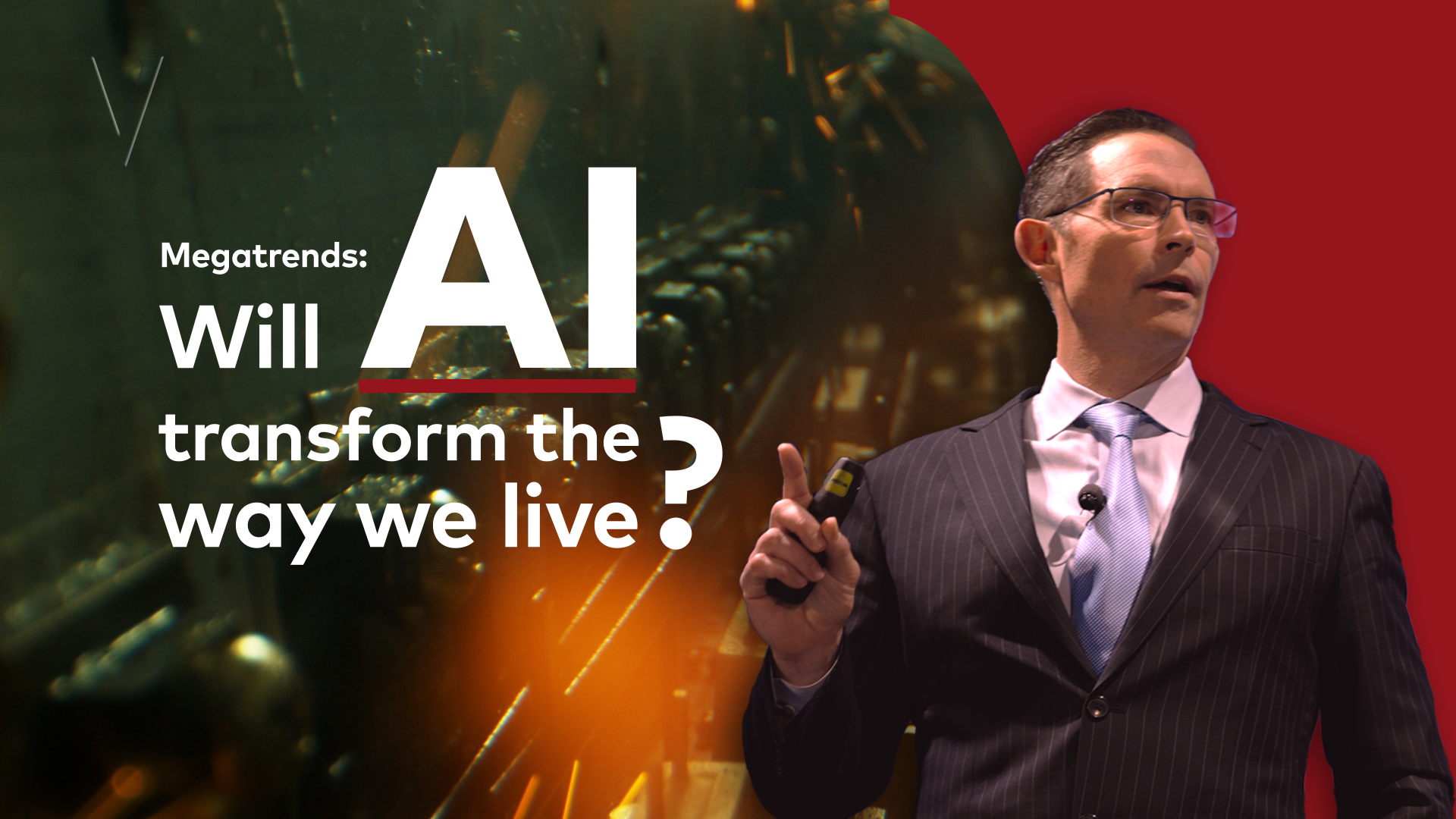Joe Davis: Could AI be as transformative as electricity? Can it change how we live? Health, happiness, and progress.
If we use technology and if we use that, innovation can be predicted. We just have to know where to look.
This is a future that very few are actually talking about.
Could AI be as transformative as electricity? I mean, in one sense, AI uses electricity, but no—could it rise to the same level? I have to be honest: I don't know the answer to that question.
But I can tell you this. If AI is to be that transformative, AI will have to do three things. Transformative technologies improve basic and unmet human needs: health, happiness, and progress.
Electricity was transformative because it helped us improve as a society along all three dimensions. And in addition, they created new industries and knock-on effects. They created new dimensions to the economy that saw improvements along health, happiness, and progress.
Let's take health. Electricity didn't increase health per se, as we think of it today, but it actually evolved the health of society in some unappreciated ways. Street lighting reduced crime in cities. The electrification of hospitals improved the quality of care, and even the installation of fire alarms in cities, which were powered by electricity.
Just think of the leap forward in society over time by lengthening the time of education. Things as simple as being able to read at night under a light. So what will AI be able to do for health?
There's already glimpses of potentially AI's transformative ability. We're seeing scientists being able to detect new patterns by folding proteins in genetics, defining patterns in terms of drug discovery and other medical treatments. What else could AI do for education? What else could it do for health care?
Happiness. Now, electricity didn't improve—I don't want to say electricity improved human happiness per se; in fact, I would argue human happiness is somewhat elusive—but electricity did change how we spend our free time.
It helped power new forms of entertainment—it's called the movie. It helped give us the ability to talk to loved ones far, far away with the telephone, which was powered by electricity. Knock-on effects.
What could AI do for peace of mind in the years ahead? And finally, progress. Progress. Transformative technologies create new industries and opportunities by creating knock-on effects.
By some estimation, more than half of the new job titles and occupations that evolve over time as society changes can actually trace their origins to transformative technologies. How may AI transform—indeed, propel—opportunities for progress in the years ahead?


